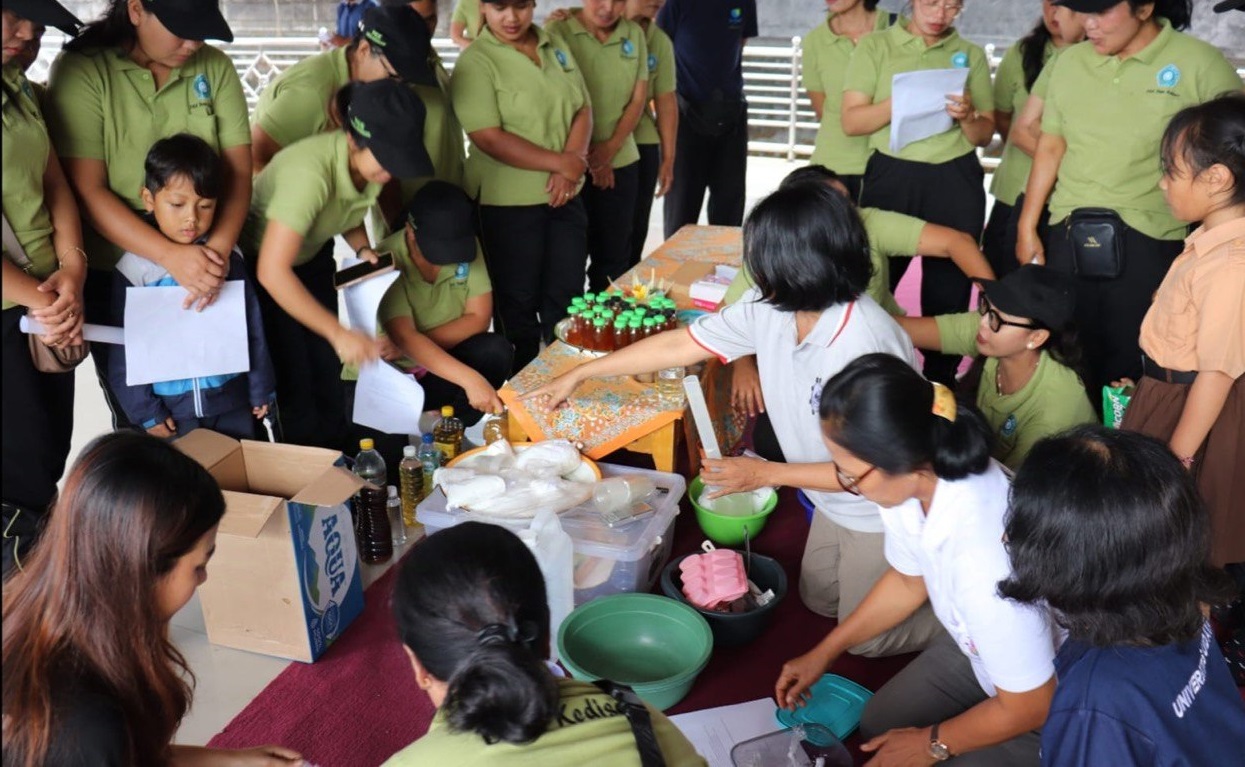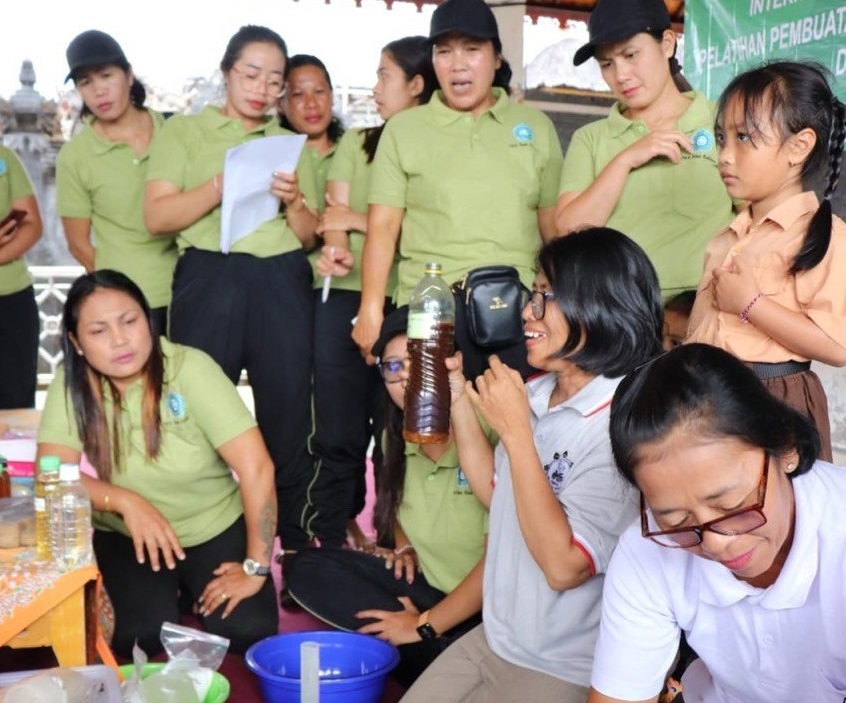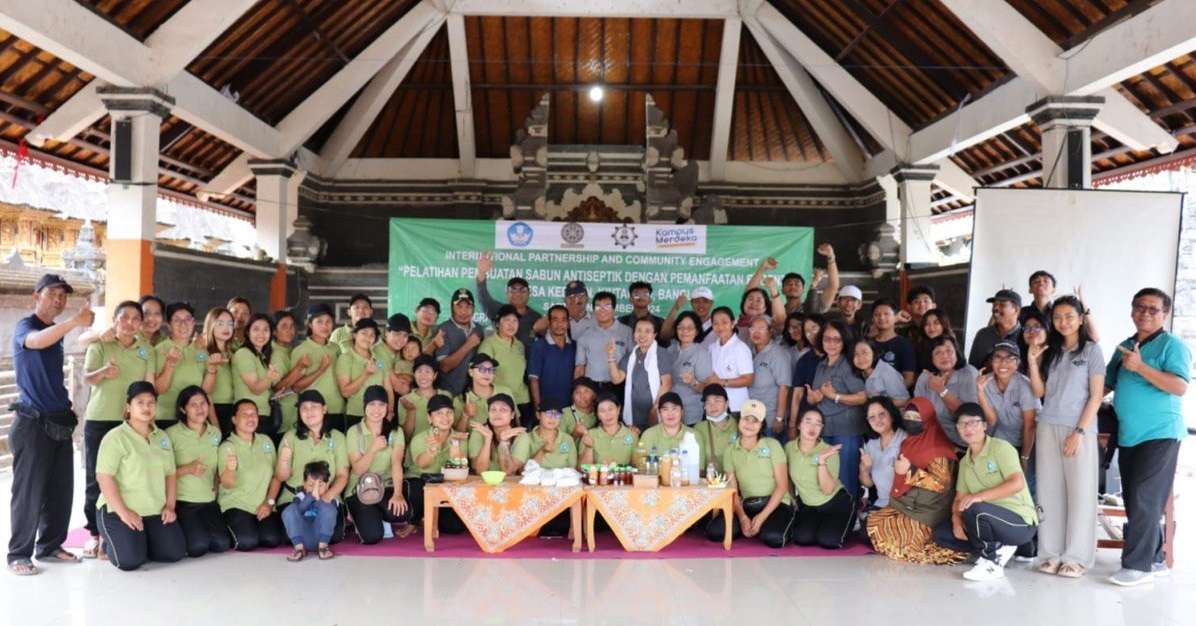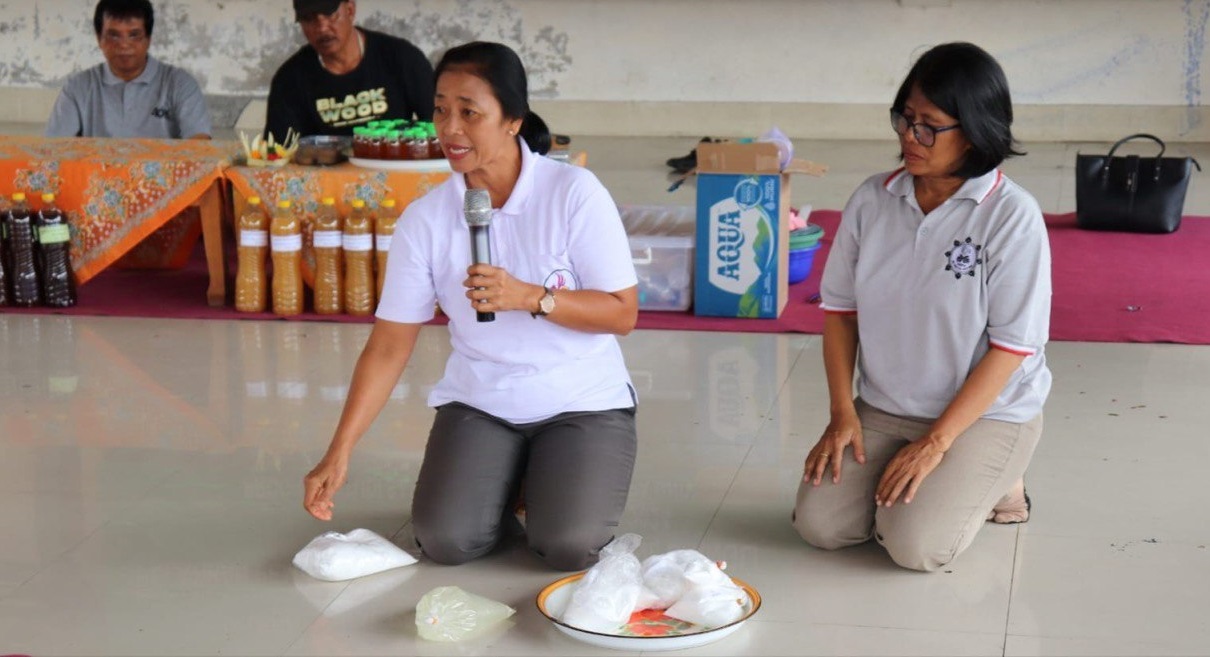Udayana University Chemistry Undergraduate Study Program Holds Training on Making Antiseptic Soap Using Ecoenzymes in Kedisan Village, Kintamani
In order to carry out one of the Tri Dharma of Higher Education activities, the Undergraduate Chemistry Study Program, Faculty of Mathematics and Natural Sciences, Udayana University (Unud) carried out Phase II Service activities which were held on Saturday, November 2 2024. Previously, phase I service was carried out on August 26 2024 regarding socialization and training on domestic wastewater management systems in Kedisan Village, Kintamani, Bangli. This activity involved the Chemistry Study Program, Faculty of Mathematics and Natural Sciences, Unud as a leader in partnership with P.T. Earth Creative International, Bangli Regency Regional Government and tourism activist community groups.

This Community Service Activity is a series of Community Service with the International Partnership and Community Engagement (IPCE) Scheme entitled "Implementation of Green Chemistry through Converting Organic Waste into Ecoenzymes, Liquid Organic Fertilizer and Domestic Liquid Waste Processing for Related Communities, Overcoming Lake Batur Water Pollution in the Village Kedisan, Kintamani District, Bangli Regency, Bali”.
This Phase II PkM activity was chaired by Dr. Drs. I Made Siaka, M.Sc. (Hons) with the theme "Training in Making Antiseptic Soap Using Ecoenzymes" aimed at PKK women in Kedisan Village, Kintamani - Bangli. This training was held at the Kedisan Village Hall, Kintamani – Bangli.

This activity was attended by the Prebekel, Village Secretary, Chair of the BPD and Village Officials, Chair of the PKK Mobilization Team and PKK Women (as training participants) in Kedisan Village, Kintamani - Bangli, and the Service Team from the Undergraduate Chemistry Study Program, Faculty of Mathematics and Natural Sciences, Udayana University (Lecturers and Students). The event was opened by the Head of Kedisan Village, Mr. I Nyoman Gama Yana.
This antiseptic soap making training activity was guided by Dr. Ni Luh Rustini, S.Si., M.Sc. and Dr. Ni Ketut Ratnayani, S.Si., M.Sc. and assisted by students. This training was given to the people of Kedisan Village, because in this village ecoenzymes have been produced intensively by utilizing agricultural waste. However, the use of ecoenzymes is still very limited, so in PkM Phase II it was introduced that ecoenzymes can be used as active ingredients in making antiseptic soap.
Several types of antiseptic soap (liquid and solid) made in this training include: dishwashing soap, hand soap, shower gel, and solid bath soap. The ingredients for making soap besides ecoenzymes are texapon, NaCl (table salt), Na-sulfate, EDTA, foam booster, MPG, Lexagard P, coconut oil, olive oil, palm oil, VCO, glycerin, cocoDEA, honey, NaOH, citrum , perfume/dye, and distilled water (aquades).

During the training, it was seen that the PKK women were very enthusiastic and eager to practice making all types of soap whose ingredients had been prepared by the Training Guide. Through this training, it is hoped that the PKK women in Kedisan Village will be able to continue making antiseptic soap using ecoenzymes in their respective homes or work in groups so they can produce antiseptic soap or create entrepreneurship on a home industry scale to increase income.









